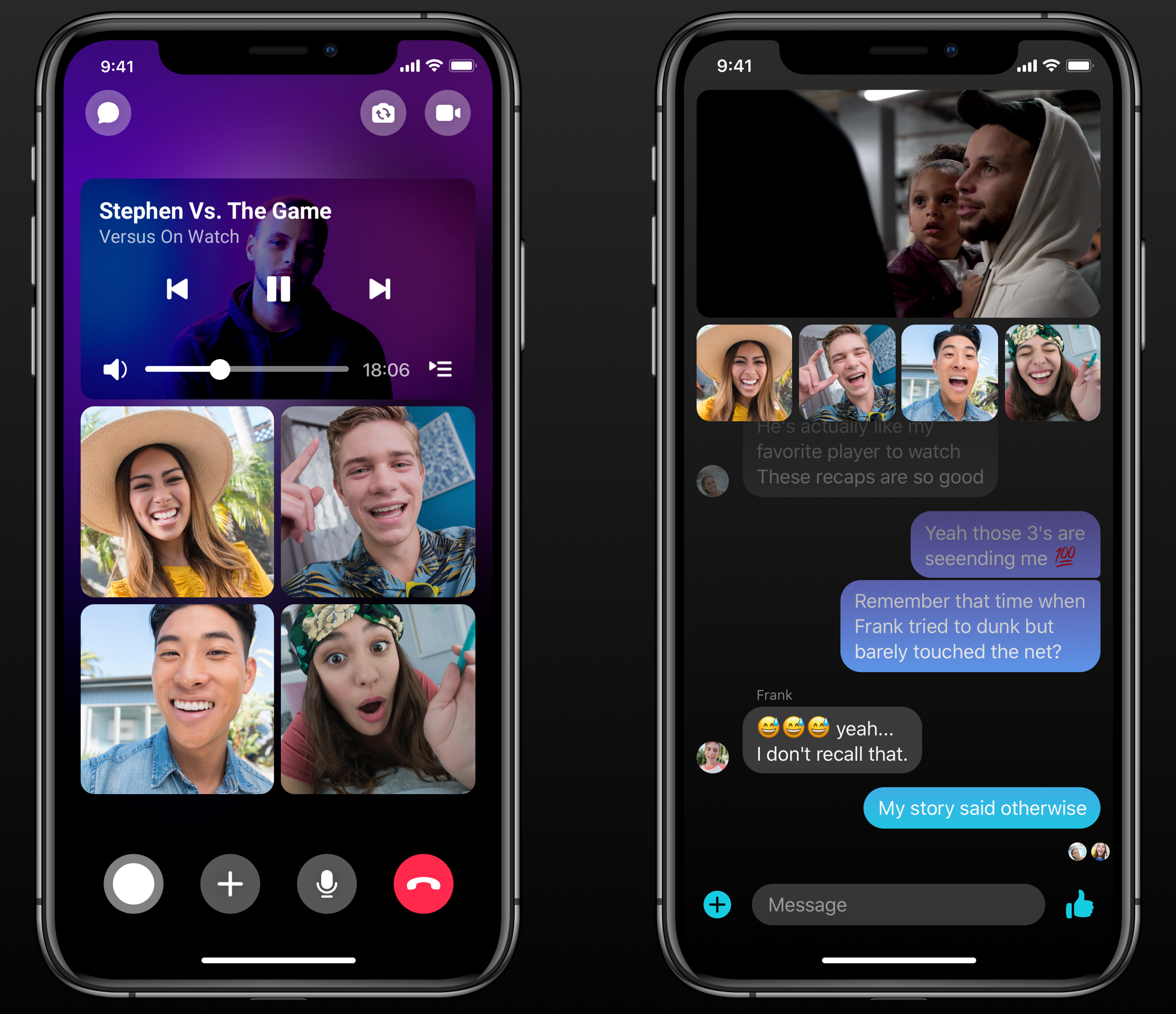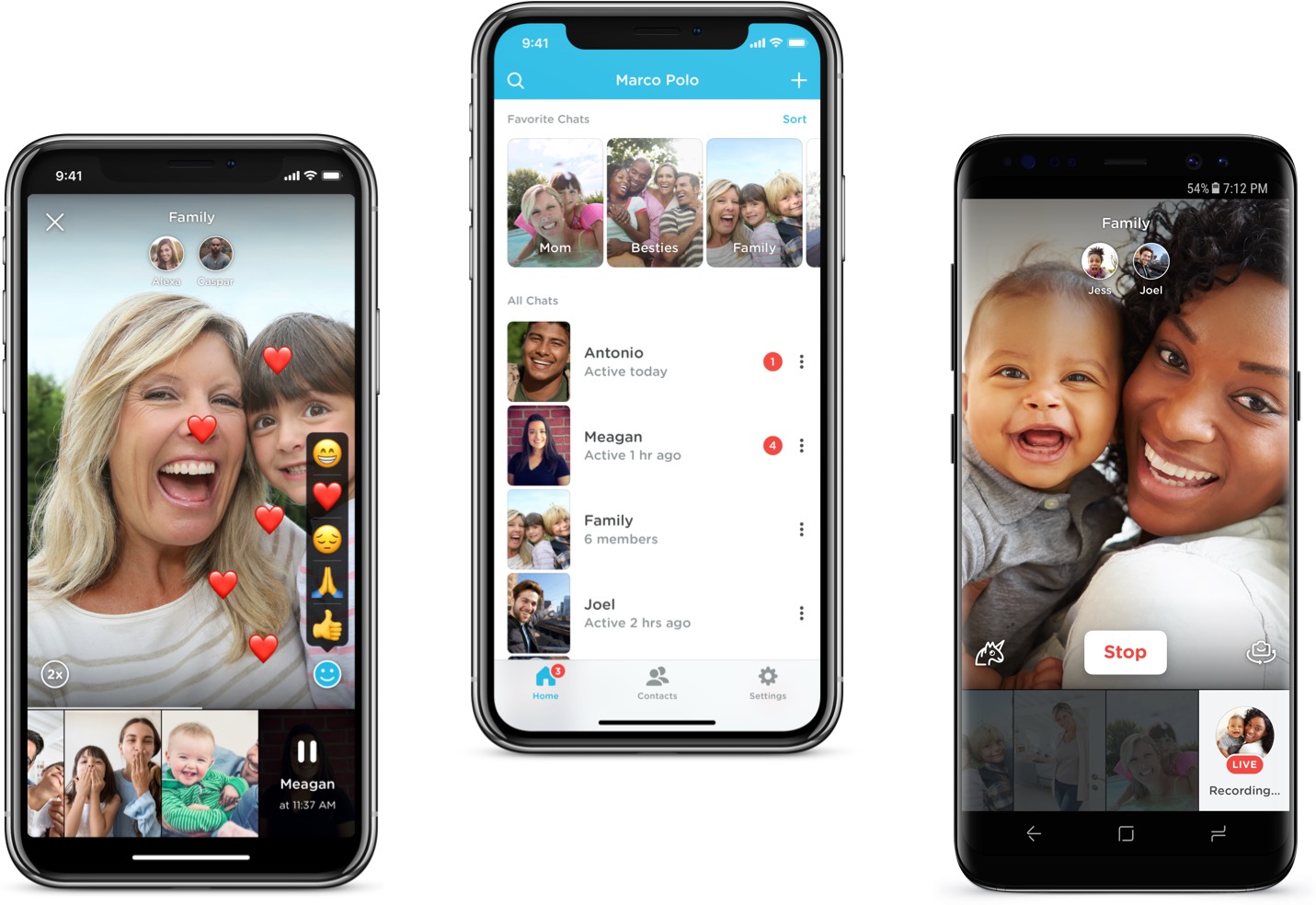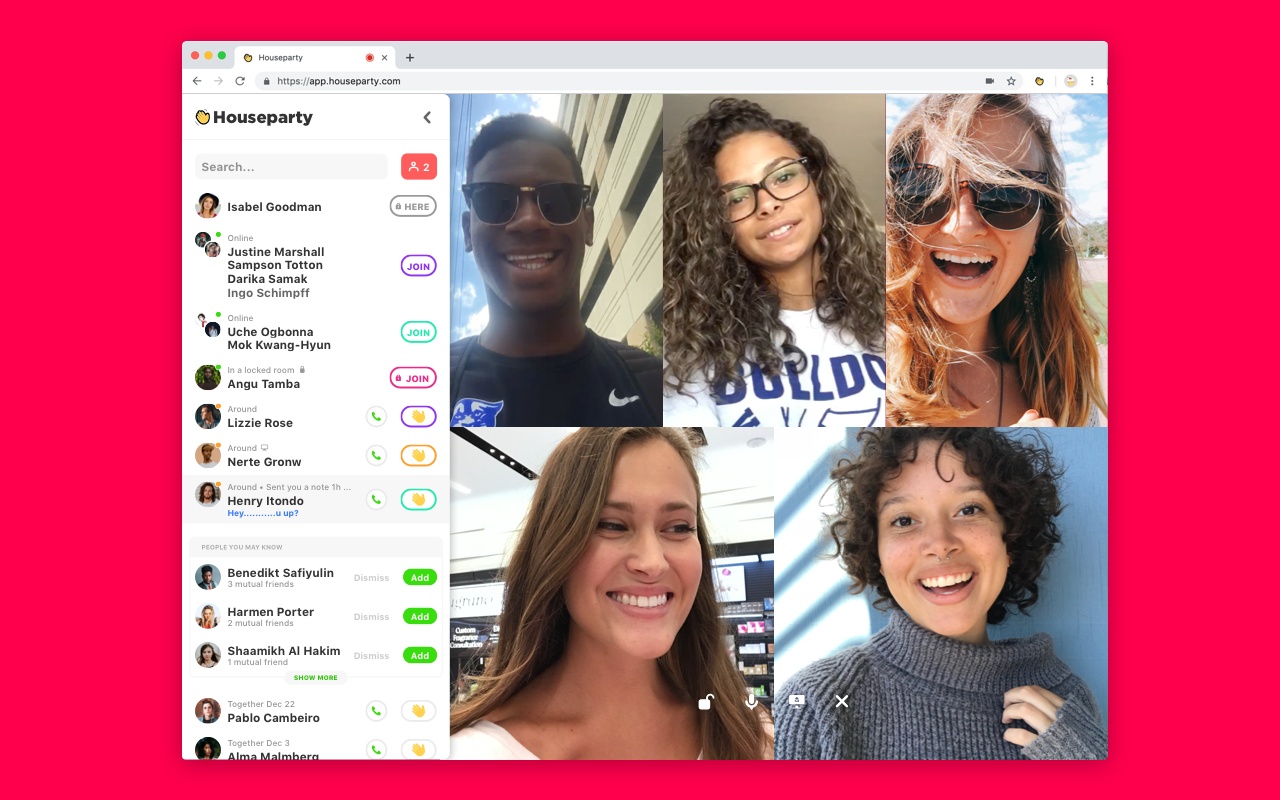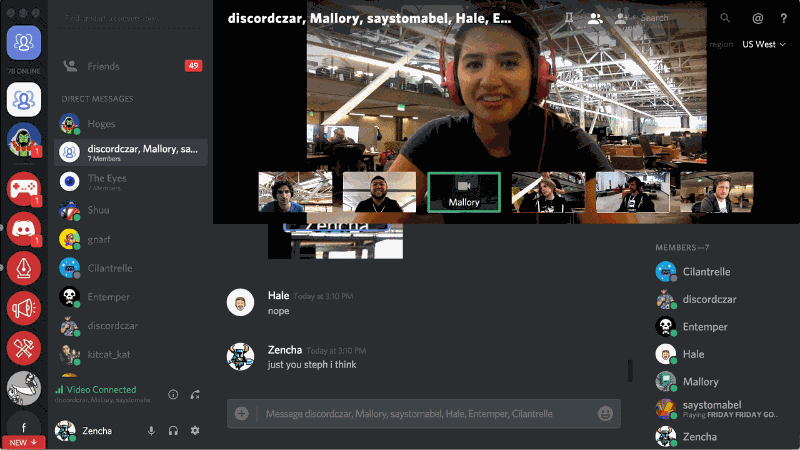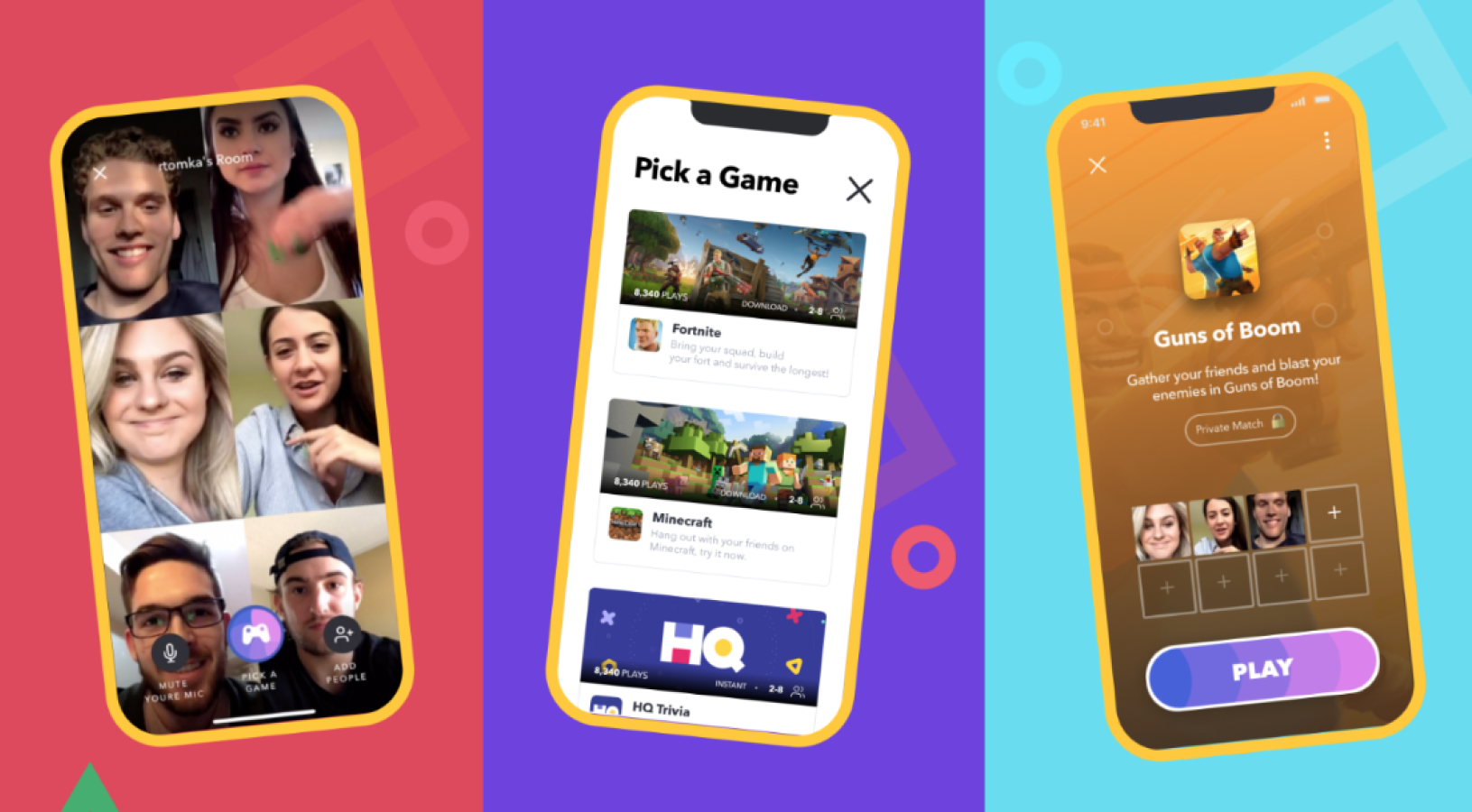APPS
The best video chat apps to turn social distancing into distant socializing
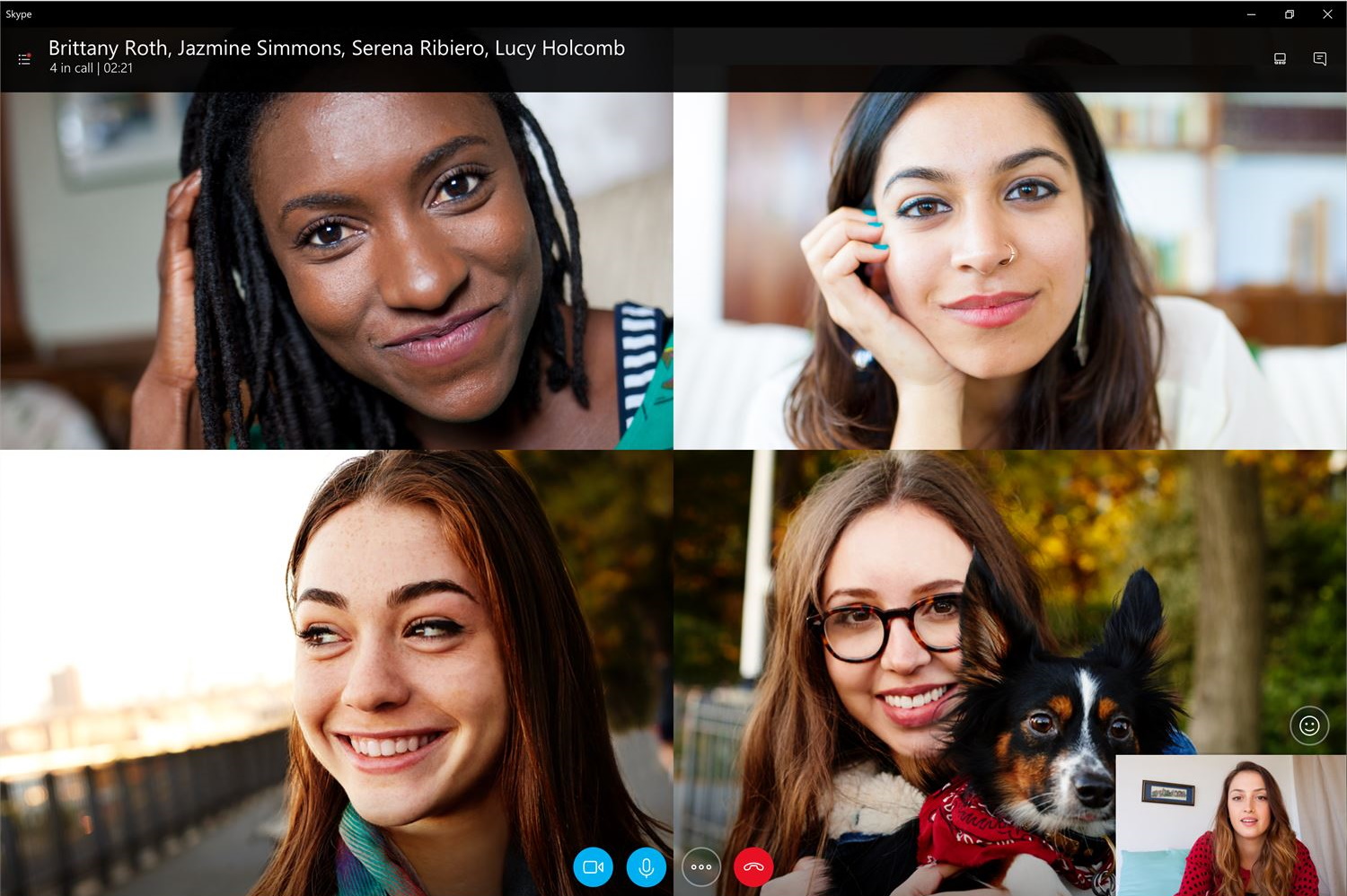
The vicissitudes of social distancing have taken many people by surprise, making video calls a new necessity for distant socializing. But which of the two dozen apps out there should you and your (perhaps not as tech-savvy) friends and family use? Here are our recommendations, whether it’s for a coffee meeting, a family get-together, or a late night gaming hangout.
This list is for individuals looking for a free solution to easily connect with others, not for small businesses or enterprises. The focus here is on ease of use and features that make it attractive to ordinary people. Every app is free and cross-platform, meaning iOS and Android at least, with many supporting Macs and Windows machines as well.
For big groups
Skype (iOS, Android, Mac, Windows, Linux, web)
Pros: Many simultaneous callers
Cons: Tries too hard to do other things
Skype has been around for a long time, and while its desktop app is pretty weak, the mobile version is solid and it supports big groups with no real time limit (4 hours per call, 100 hours per month), for free. As long as you focus on just the video calls, it’s great, but Skype’s emoji reactions, status updates, and other cruft are best avoided.
Zoom (iOS, Android, Mac, Windows)
Pros: Many simultaneous callers, strong admin controls
Cons: Sketchy background data policies, 40 minute limit
Zoom is one of the most popular business video conference apps out there due to its reliability, solid web integration, and other features. It’s not really made for personal calls — there are way more bells and whistles than you need — but its free plan works just fine for them. Unfortunately, there’s a 40 minute limit for group calls, which you’ll hit faster than you think, and everyone will have to hang up and start again. Zoom has also been criticized for its considerable behind-the-scenes data collection. If you really want to just chill with your friends, there are better options.
For friends and family
FB Messenger (iOS, Android, Mac, Windows)
Pros: Easy to use, many people already on it, some handy group features
Cons: Facebook account required
Messenger is a popular app for good reason — it works well for pretty much every kind of digital communication you might want to do with your friends. It supports up to 8 people in free video calls with no duration limit, and when you are doing a two-person call it switches to a peer-to-peer structure, skipping servers and potentially avoiding congestion. Of course, it’s also a Facebook product, meaning you’ll need an account there — not something everyone is into. But Messenger use is considerably better protected from Facebook snooping than posts and images on the main site.
WhatsApp Messenger (iOS, Android, Mac, Windows, web)
Pros: Secure, popular
Cons: Only 4 people per video call
Think of WhatsApp as FB Messenger’s nerdier, less good-looking sibling. With a focus on privacy, WhatsApp is popular around the world despite being super ugly, and while video calls aren’t its main feature, they are possible if you don’t mind a 4-person limit. To activate it, start a group chat and then hit the call button the top right and select the participants, then hit the camera.
Google Duo or Hangouts (iOS, Android, web)
Pros: Simple interface, uses existing Google account
Cons: Confusing platform issues, Duo may not be long for this world
Duo is one of Google’s later messaging products, started as a complement to Allo and meant to be sort of the consumer version of Hangouts, which is being split into Chat and Meet, but still exists on its own. Confused? So is Google. But the apps work pretty well for now, plugging into your existing Google contacts and accounts and letting you do straightforward, unlimited video calls. If your friends don’t want to sign up for a new account anywhere, this is a good option — just don’t get attached, as unpopular Google products don’t tend to live for long.
Pros: Video messaging is a fun alternative to live chats
Cons: No live chat option
This isn’t a video chat app per se, but the fact is not everyone really wants to do a full-on live face-to-face video all the time. Marco Polo is like a streamlined Snapchat, sending short videos to friends or groups with the option to add doodles, filters and so on. If you and your friends are finding it hard to set aside half an hour to talk live, this can be a good alternative.
Honorable mentions: FaceTime, Instagram
FaceTime is great, but it’s not cross-platform, considerably limiting its usefulness. But if your friends do happen to have Apple products, it’s a great, simple option. Instagram has video calling built into direct messages, which is nice for quick calls with people you aren’t sure you want to bring into a smaller circle of connectivity.
For having fun together
Houseparty (iOS, Android, web)
Pros: Simple drop-in, drop-out group chat, built-in games
Cons: Basically a trojan horse for Heads Up
Houseparty established its brand as the app teens were using to chat with groups of friends without leaving the house. Pundits disapproved, but as usual, the kids get the last laugh. Houseparty is nice for a group of close friends, alerting you when someone’s available and letting people easily join in the chat with minimal fuss. The built in games are also fun, but you’ll have to pony up for Heads Up decks. The Pictionary clone is fun but desperately needs more words.
Discord (iOS, Android, Mac, Windows, Linux, web)
Pros: Great for voice chat while gaming or simple occasional video chat
Cons: Occasionally confusing interface, not video-focused
Discord is the de facto champion for gaming-related communications, taking the place of many in-game chat interfaces and even schooling industry heavyweights like Steam. While it’s mainly focused on audio and does that well, video is an option too. Less savvy users may also find its interface confusing, with multiple tabs, groups, and channels.
Honorable mention: Bunch, Squad
A newer app, Bunch, is focused on group games while in video chat. This can be hit or miss and you can expect in-app purchases, and startups like this don’t always live forever. But Bunch is probably getting a lot of engagement right now and can use that to extend its credit long enough to power through the summer at least. I can’t think of a better opportunity to give it a shot.
Squad is focused on sharing what you’re doing on your phone while chatting — so you can Tinder together, watch videos, etc. Like Bunch it’s still new so you’ll have to get your friends to sign up, but it’s a nice way to share what you’re scrolling (or swiping) through.
APPS
Best ASO Tips To Boost Your App Search In 2022

You need your application to be really effective in the overpopulated application market. Then, at that point, you will have to drive downloads to endure. So when it’s all said and done, you must account for yourself. Get your application the consideration it merits.
The uplifting news, however, is that customers love to download applications – last year, we downloaded in excess of 200 billion applications around the world, and that figure is set to increment to 258 billion every year by 2022 as cell phone reception increments.
Assuming you need to be seen and have your application downloaded by however many clients as could reasonably be expected, then, at that point, you should begin by taking a gander at the application store.
Underneath, we’ve assembled probably the best application store improvement methods to assist you with creating more downloads in 2021 and then some…
Start with Your Application Name
The odds are you as of now have an extraordinary name for your application, yet an appropriately advanced application is about significantly more than marking.
Assuming you need to amplify transparency and guarantee you’re showing up when clients look for applications like yours, you ought to remember the primary keywords for your application name or title, comparable to how you’d make a title label while improving a site page.
You could begin with your application name so it tends to be plainly recognized, thus it appears on the home screen of gadgets.
Then, at that point, you can add a scramble or vertical bar prior to adding a few pertinent watchwords to your speciality, or even put your application name in quotes as we did with FORE Business Golf Networking.
Urge Users to Leave Reviews
You could ask for reviews by clients through the means of your site, or through an in-application notice toward the finish of their meeting, yet make sure to restrict the number of pop-ups you execute with the goal that you don’t disturb or disappoint your clients, as this could urge them to erase your application.
We’d support all application engineers and entrepreneurs to react to criticism on their applications, as this can further develop client relations and resolve issues in an open arena.
Zero in on Your Application Depiction
Your application depiction is your principle assemblage of text your landing page content, in a manner of speaking. Utilize a site like KeywordTool.io to discover information on your picked catchphrases to expand your openness. As portrayals are shortened, ensure you remember the main data for the initial three lines of your depiction, and afterwards add things like social confirmation, emoticon, and suggestions to take action to build commitment and downloads.
Incorporate Appealings Screen Captures
Pictures and recordings won’t help your application rank, yet they will expand changes and assist clients with working out whether it’s an application they truly need.
There’s a little guide in empowering clients toward downloading your application if in any case, they’re not going to interface with it, or download and leave a negative survey when they understand it wasn’t what was promoted.
Assuming you need to ‘tart up’ your item page, then, at that point, you can add marking and extra text and data and designs to your recordings and screen capture, yet they ought not to diminish your item.
Pay for App Store or Play Store
As we have SEO and pay-per-click, you need to work one next to the other (one is a gradual methodology with long haul benefits – the other is a speedy success yet requires an endless spending plan), application store promotions can be utilized to get the message out with regards to your new programming and assist you with positioning at the highest point of query items pages – in front of your opposition and enormous names in the application world.
Keep in mind, you’ll need to focus on the right crowd and art an advertisement that will assist you with changing over and that since you’re paying for situations, that doesn’t mean clients will download or cooperate with your application.
Wrapping Up!
You can employ a group of App Store Optimization Services suppliers to benefit a scope of application store improvement administrations, including watchword advancement, resource enhancement, and restriction to guarantee your application is seen by individuals that matter.
We have long periods of involvement in creating and showcasing applications and have assisted different customers with expanding their downloads by infiltrating rewarding and regularly undiscovered business sectors.
Author:
Prachi Gupta likes to write information about Digital Marketing Trends that can help audience to grow their business.
APPS
WhatsApp will finally let users encrypt their chat backups in the cloud
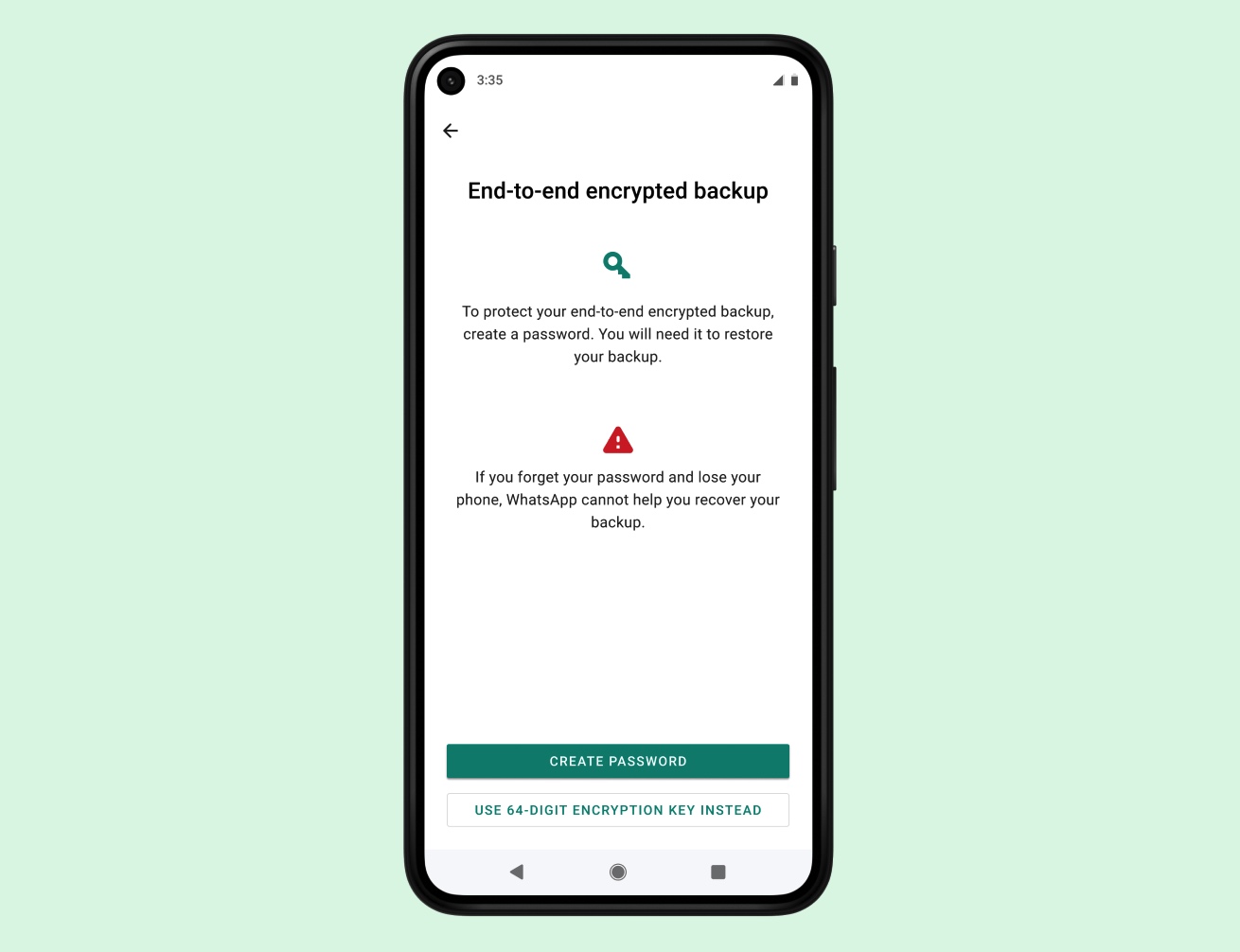
WhatsApp said on Friday it will give its two billion users the option to encrypt their chat backups to the cloud, taking a significant step to put a lid on one of the tricky ways private communication between individuals on the app can be compromised.
The Facebook-owned service has end-to-end encrypted chats between users for more than a decade. But users have had no option but to store their chat backup to their cloud — iCloud on iPhones and Google Drive on Android — in an unencrypted format.
Tapping these unencrypted WhatsApp chat backups on Google and Apple servers is one of the widely known ways law enforcement agencies across the globe have for years been able to access WhatsApp chats of suspect individuals.
Now WhatsApp says it is patching this weak link in the system.
“WhatsApp is the first global messaging service at this scale to offer end-to-end encrypted messaging and backups, and getting there was a really hard technical challenge that required an entirely new framework for key storage and cloud storage across operating systems,” said Facebook’s chief executive Mark Zuckerberg in a post announcing the new feature.
Store your own encryption keys
The company said it has devised a system to enable WhatsApp users on Android and iOS to lock their chat backups with encryption keys. WhatsApp says it will offer users two ways to encrypt their cloud backups, and the feature is optional.
In the “coming weeks,” users on WhatsApp will see an option to generate a 64-digit encryption key to lock their chat backups in the cloud. Users can store the encryption key offline or in a password manager of their choice, or they can create a password that backs up their encryption key in a cloud-based “backup key vault” that WhatsApp has developed. The cloud-stored encryption key can’t be used without the user’s password, which isn’t known by WhatsApp.
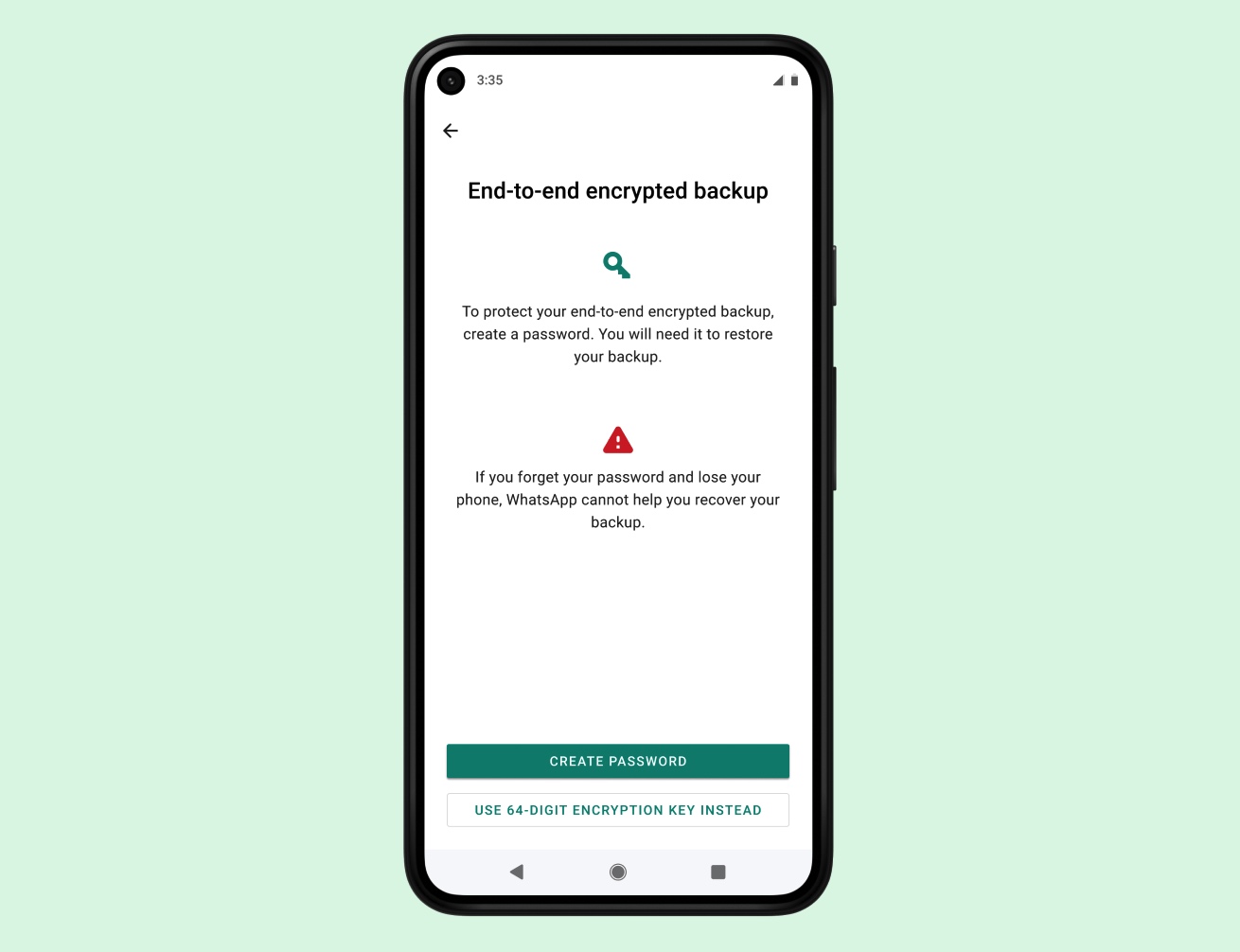
Image Credits: WhatsApp/supplied
“We know that some will prefer the 64-digit encryption key whereas others want something they can easily remember, so we will be including both options. Once a user sets their backup password, it is not known to us. They can reset it on their original device if they forget it,” WhatsApp said.
“For the 64-digit key, we will notify users multiple times when they sign up for end-to-end encrypted backups that if they lose their 64-digit key, we will not be able to restore their backup and that they should write it down. Before the setup is complete, we’ll ask users to affirm that they’ve saved their password or 64-digit encryption key.”
A WhatsApp spokesperson told TechCrunch that once an encrypted backup is created, previous copies of the backup will be deleted. “This will happen automatically and there is no action that a user will need to take,” the spokesperson added.
Potential regulatory pushback?
The move to introduce this added layer of privacy is significant and one that could have far-reaching implications.
End-to-end encryption remains a thorny topic of discussion as governments continue to lobby for backdoors. Apple was reportedly pressured to not add encryption to iCloud Backups after the FBI complained, and while Google has offered users the ability to encrypt their data stored in Google Drive, the company allegedly didn’t tell governments before it rolled out the feature.
When asked by TechCrunch whether WhatsApp, or its parent firm Facebook, had consulted with government bodies — or if it had received their support — during the development process of this feature, the company declined to discuss any such conversations.
“People’s messages are deeply personal and as we live more of our lives online, we believe companies should enhance the security they provide their users. By releasing this feature, we are providing our users with the option to add this additional layer of security for their backups if they’d like to, and we’re excited to give our users a meaningful advancement in the safety of their personal messages,” the company told TechCrunch.
WhatsApp also confirmed that it will be rolling out this optional feature in every market where its app is operational. It’s not uncommon for companies to withhold privacy features for legal and regulatory reasons. Apple’s upcoming encrypted browsing feature, for instance, won’t be made available to users in certain authoritarian regimes, such as China, Belarus, Egypt, Kazakhstan, Saudi Arabia, Turkmenistan, Uganda and the Philippines.
At any rate, Friday’s announcement comes days after ProPublica reported that private end-to-end encrypted conversations between two users can be read by human contractors when messages are reported by users.
“Making backups fully encrypted is really hard and it’s particularly hard to make it reliable and simple enough for people to use. No other messaging service at this scale has done this and provided this level of security for people’s messages,” Uzma Barlaskar, product lead for privacy at WhatsApp, told TechCrunch.
“We’ve been working on this problem for many years, and to build this, we had to develop an entirely new framework for key storage and cloud storage that can be used across the world’s largest operating systems and that took time.”
APPS
Dispo launches a test to gauge user interest in selling their photos as NFTs
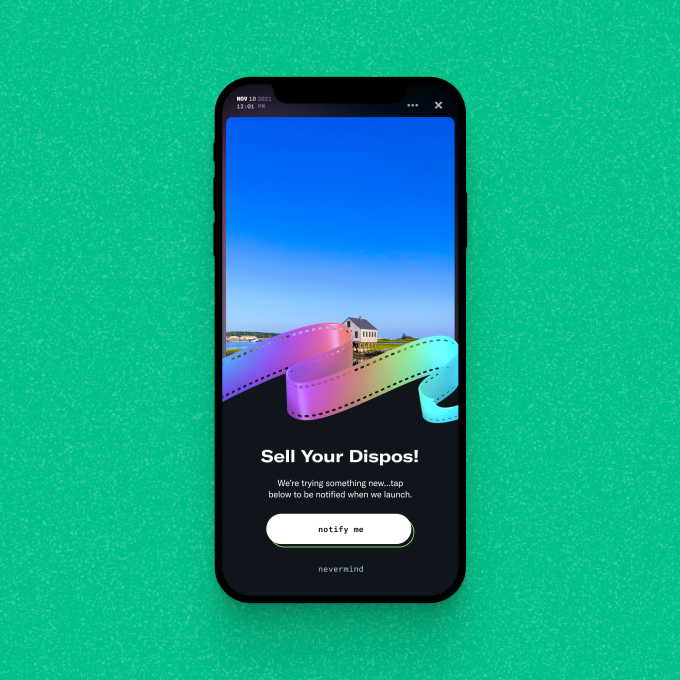
Dispo, the photo-sharing app that emulates disposable cameras, started rolling out a test yesterday that will record user interest in selling photos as NFTs. Some users will now see a sell button on their photos, and when they tap it, they can sign up to be notified when the ability to sell Dispo photos launches.
CEO and co-founder Daniel Liss told TechCrunch that Dispo is still deciding how it will incorporate NFT sales into the app, which is why the platform is piloting a test with its users. Dispo doesn’t know yet what blockchain it would use, if it would partner with an NFT marketplace or what cut of sales Dispo would take.
“I think it’s safe to say from the test that there will be an experience native to the Dispo app,” Liss said. “There are a number of ways it could look — there could be a native experience within Dispo that then connects through an API to another platform, and in turn, they’re our partner, but to the community, it would look native to the Dispo app.”
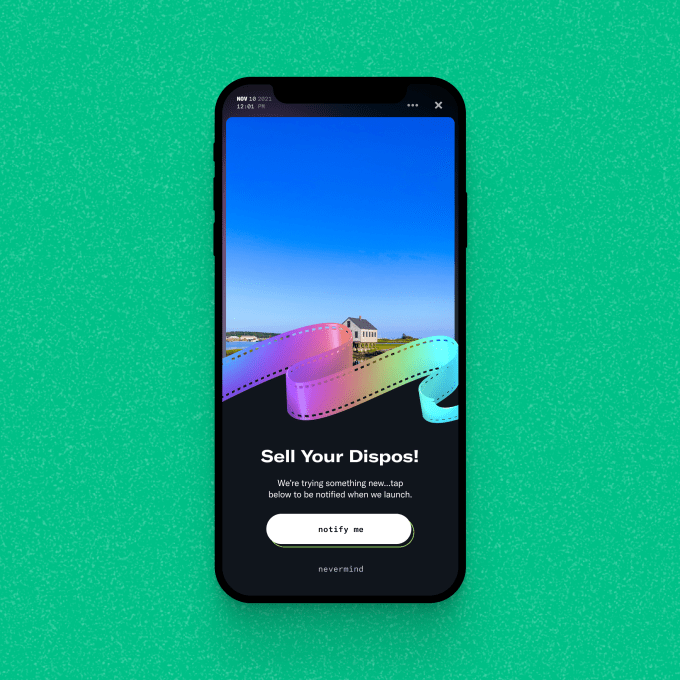
Image Credits: Dispo
This marks a new direction for the social media app, which seeks to redefine the photo-sharing experience by only letting users see the photos they took at 9 AM the next morning. From Dispo’s perspective, this gimmick helps users share more authentically, since you take one photo and then you’re done — the app isn’t conducive to taking dozens of selfies and posting the “best” image of yourself. But though it only launched in December 2019, Dispo has already faced both buzzy hype and devastating controversy.
Until about a year ago, the app was called David’s Disposables, named after co-founder and YouTuber David Dobrik. The app was downloaded over a million times in the first week after its release and hit No. 1 on the App Store charts. In March 2021, the app dropped its waitlist and relaunched with social network features, but just weeks later, Insider reported sexual assault allegations against a member of Vlog Squad, Dobrik’s YouTube prank ensemble. In response, Spark Capital severed ties with the company, leading to Dobrik’s departure. Other investors like Seven Seven Six and Unshackled Ventures, which contributed to the company’s $20 million Series A round, announced that they would donate any profits from their investments in Dispo to organizations working with survivors of sexual assault.
Liss told TechCrunch in June, when the company confirmed its Series A, that Dobrik’s role with the company was as a marketing partner — Liss has been CEO since the beginning. In light of the controversy, Liss said the app focused on improving the product itself and took a step back from promotion.
According to data from the app analytics firm SensorTower, Dispo has reached an estimated 4.7 million global installs to date since launch. Though the app saw the most downloads in January 2020, when it was installed over 1 million times, the app’s next best month came in March 2021, when it removed its waitlist — that month, about 616,000 people downloaded Dispo. Between March and the end of August, the app was downloaded around 1.4 million times, which is up 118% year over year compared to the same time frame in 2020 — but it should be expected that this year’s numbers would be higher, since last year, the app’s membership was exclusive.

Image Credits: Dispo
Now, with the announcement that Dispo is pursuing NFTs, Liss hopes that his company won’t just change how people post photos, but what the relationship will be between platforms and the content that users create.
“Why NFTs? The most powerful memories of our lives have value. And they have economic value, because we created them, and the past of social media fails to recognize that,” Liss told TechCrunch. “As a result, the only way that a creator with a big following is compensated is by selling directly to a brand, as opposed to profiting from the content itself.”
Adding NFT sales to the app offers Dispo a way to profit from a cut of user sales, but it stands to question how adding NFT sales could impact the community-focused feel of Dispo.
“I think there is tremendous curiosity and interest,” Liss said. “But these problems and questions are why we need more data.”
-

 SEARCHENGINES7 days ago
SEARCHENGINES7 days agoGoogle Core Update Volatility, Helpful Content Update Gone, Dangerous Google Search Results & Google Ads Confusion
-

 SEO7 days ago
SEO7 days ago10 Paid Search & PPC Planning Best Practices
-

 MARKETING5 days ago
MARKETING5 days ago5 Psychological Tactics to Write Better Emails
-

 SEARCHENGINES6 days ago
SEARCHENGINES6 days agoWeekend Google Core Ranking Volatility
-

 MARKETING6 days ago
MARKETING6 days agoThe power of program management in martech
-

 SEO6 days ago
SEO6 days agoWordPress Releases A Performance Plugin For “Near-Instant Load Times”
-

 PPC5 days ago
PPC5 days ago20 Neuromarketing Techniques & Triggers for Better-Converting Copy
-
SEARCHENGINES4 days ago
Daily Search Forum Recap: April 15, 2024




